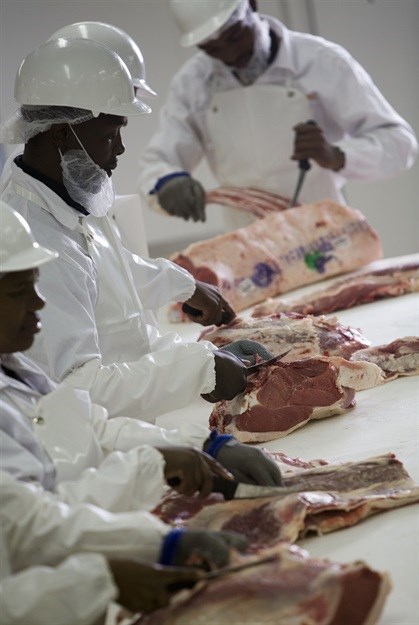
Subscribe & Follow
Building local supply chain aids food franchises
Jonathan Herbert, executive supply chain manager at Burger King in South Africa, says the burger chain has made developing a local supply chain a key business priority since entering the country in May 2013.

“As the brand expands, we have reaffirmed our commitment to sourcing locally. All our chicken, beef, burger buns, fresh produce, diary and packaging are locally sourced. Our vision is to continuously improve the company’s responsible food journey through the use of a local supply chain.”
Top five reasons to build effective local supply chain
- Sustainability: food integrity is key. Using a local supply chain, we can source quality goods directly and make sure these do not have a negative impact on the environment. We are also assured that the products we source are of the highest possible quality. It is important to build strong relationships with suppliers and to select those who share your company’s ethos. This foundation allows you to offer value to your guests and create a happy experience where people trust the product and brand.
- Full traceability: means every leg of the food journey, from farm to table, can be traced. It also contributes directly to ensuring the food we serve is safe for guests. We work directly with producers to ensure all products are ethically sourced and that they comply with global standards and best practice. Our criteria is strict and closely monitored to ensure we partner with responsible suppliers who apply water saving techniques, do not abuse the use of chemicals, and who conduct stock rotation to name but a few. This helps us to ensure that the products served to our guests fully comply with our responsible food journey ethos.
Each burger produced at the group’s quick service restaurant can be fully traced back to a specific batch or delivery. The Grand Foods burger plant in Cape Town where all 100% pure beef patties are made is audited regularly by independent third party organisations. Even oil purchased from approved suppliers is sourced first-hand so that the exact source of the oil is known and can be verified. Burger King South Africa complies with a global food safety standard and is FSSC22000 approved.
- Speed-to-market: the speed at which any produce reaches the restaurant is much quicker when sourced locally. The benefits of getting a product to the market quickly means its quality and freshness are superior. There is also less chance of products reaching their sell-by dates due to distance or travel complications – so waste is reduced. Food costs can be kept down because of reduced transportation costs, and carbon emissions are kept lower so there is less harm to the environment.
- Best practice: complying to ‘international best practice’ is part of the daily dealings of most companies. Best practice is a vague term and can be interpreted in many ways – for us it means two things:
a. Growth and investment in local businesses to ensure job creation: with the current South African unemployment rate at its highest since 2008, job creation and commitment to local goods and services are important – currently 98% of our supplies are sourced locally;
b. Offering guests the best value for their money: value does not mean a compromise on quality, which is of the utmost importance. All burgers are made using 100% pure beef. We only work with suppliers who maintain strict animal welfare policies and who are able to trace all their products. Ensuring guests receive the best products at an affordable price, is critical.
- Product innovation: working directly with local producers allows us to choose: specific cultivars, the time of the year that produce is grown and certain conditions, such as shade cloth, crop management and harvesting practices. These elements provide the opportunity for tailored menus which suit the various markets in which the company operates. As a global brand, there are specific standards to which we need to adhere, but our local supply chain allows us flexibility with our menu. We are able to offer limited time offers, as well as provide South Africans with classic menu items such as the internationally loved Whopper, while also adding a taste of home, in the form of our malva pudding, which you will not find on any of our menus in other parts of the world.
For more information, go to www.burgerking.co.za.










